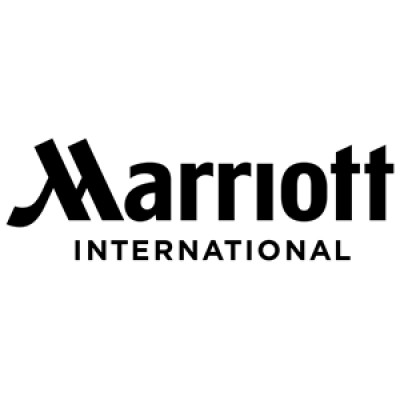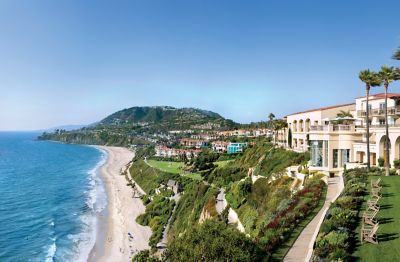Marriott International's Bold Expansion in Asia Pacific: A New Era of Hospitality
February 8, 2025, 4:34 am

Location: United States, Maryland, North Bethesda
Employees: 10001+
Founded date: 1965
Total raised: $251K

Location: United States, Maryland, Bethesda
Employees: 10001+
Founded date: 1983
Marriott International is on a roll. The hotel giant has made waves in the Asia Pacific region, excluding China, with record-breaking growth in 2024. This growth is not just a ripple; it’s a tidal wave. The company signed 109 new deals, adding over 21,000 rooms to its development pipeline. The numbers tell a compelling story.
India, Indonesia, and Japan are the stars of this show, accounting for a staggering 72% of new signings. Marriott’s strategy is clear: expand aggressively in key markets. The luxury segment is a focal point, representing 19% of signed deals. New properties like the EDITION in Mumbai and Ritz-Carlton in Jaipur are set to redefine luxury in these vibrant cities.
The hospitality landscape is shifting. Modern travelers seek unique experiences. Marriott is adapting. The company’s total pipeline in the region has surged by 12%, now boasting over 77,000 rooms across 363 hotels. This is not just growth; it’s a transformation.
Marriott’s success is rooted in strategic planning. The company is not merely filling rooms; it’s crafting experiences. The introduction of new brands caters to diverse traveler needs. From luxury seekers to budget-conscious adventurers, Marriott is casting a wide net.
In 2024, the company celebrated significant milestones. The Katra Marriott Resort & Spa marked Marriott’s 150th property in India. This achievement is more than a number; it symbolizes Marriott’s commitment to the Indian market. The Adelaide Marriott Hotel became the 600th property in the APEC region, showcasing Marriott’s expansive reach.
The growth story doesn’t stop there. Marriott is not just opening hotels; it’s entering new territories. The debut of Marriott Executive Apartments in Papua New Guinea highlights this ambition. Each new property is a stepping stone, expanding Marriott’s footprint across 22 countries in the region.
The luxury segment is thriving. With over 4,600 rooms added through 20 agreements, Marriott is meeting the demands of affluent travelers. The Ritz-Carlton and EDITION brands are poised to attract high-end clientele. These properties are not just hotels; they are destinations in themselves.
Marriott’s strategy includes multi-unit agreements and conversions. This approach allows for rapid expansion without starting from scratch. In Japan, the Four Points Flex by Sheraton launched as part of a strategic agreement to convert 14 properties. This flexibility is key in a competitive market.
The hospitality industry is evolving. Travelers are looking for more than just a place to sleep. They want experiences that resonate. Marriott’s diverse portfolio addresses this need. The Moxy Hotels brand, for instance, caters to a younger demographic seeking vibrant, design-forward stays.
Marriott’s growth is a testament to its adaptability. The company is not just reacting to market trends; it’s anticipating them. By enhancing offerings and entering new markets, Marriott is positioning itself as a leader in the global hospitality industry.
The numbers are impressive, but they are only part of the story. Behind the statistics lies a commitment to quality and service. Marriott is focused on delivering value to owners, franchisees, and developers. This approach fosters strong partnerships and drives growth.
As Marriott continues to expand, it faces challenges. The hospitality industry is not without its hurdles. Economic fluctuations, changing travel patterns, and evolving consumer preferences can impact growth. However, Marriott’s strategic foresight positions it well to navigate these challenges.
The future looks bright for Marriott International in the Asia Pacific region. With a robust pipeline and a commitment to innovation, the company is set to redefine hospitality. Each new property is a chapter in a larger narrative of growth and transformation.
In conclusion, Marriott International is not just expanding; it’s revolutionizing the hospitality landscape in Asia Pacific. The company’s strategic growth, focus on luxury, and commitment to diverse traveler needs set it apart. As the hospitality industry evolves, Marriott is poised to lead the charge, crafting unforgettable experiences for travelers around the globe. The journey is just beginning, and Marriott is ready to take flight.
India, Indonesia, and Japan are the stars of this show, accounting for a staggering 72% of new signings. Marriott’s strategy is clear: expand aggressively in key markets. The luxury segment is a focal point, representing 19% of signed deals. New properties like the EDITION in Mumbai and Ritz-Carlton in Jaipur are set to redefine luxury in these vibrant cities.
The hospitality landscape is shifting. Modern travelers seek unique experiences. Marriott is adapting. The company’s total pipeline in the region has surged by 12%, now boasting over 77,000 rooms across 363 hotels. This is not just growth; it’s a transformation.
Marriott’s success is rooted in strategic planning. The company is not merely filling rooms; it’s crafting experiences. The introduction of new brands caters to diverse traveler needs. From luxury seekers to budget-conscious adventurers, Marriott is casting a wide net.
In 2024, the company celebrated significant milestones. The Katra Marriott Resort & Spa marked Marriott’s 150th property in India. This achievement is more than a number; it symbolizes Marriott’s commitment to the Indian market. The Adelaide Marriott Hotel became the 600th property in the APEC region, showcasing Marriott’s expansive reach.
The growth story doesn’t stop there. Marriott is not just opening hotels; it’s entering new territories. The debut of Marriott Executive Apartments in Papua New Guinea highlights this ambition. Each new property is a stepping stone, expanding Marriott’s footprint across 22 countries in the region.
The luxury segment is thriving. With over 4,600 rooms added through 20 agreements, Marriott is meeting the demands of affluent travelers. The Ritz-Carlton and EDITION brands are poised to attract high-end clientele. These properties are not just hotels; they are destinations in themselves.
Marriott’s strategy includes multi-unit agreements and conversions. This approach allows for rapid expansion without starting from scratch. In Japan, the Four Points Flex by Sheraton launched as part of a strategic agreement to convert 14 properties. This flexibility is key in a competitive market.
The hospitality industry is evolving. Travelers are looking for more than just a place to sleep. They want experiences that resonate. Marriott’s diverse portfolio addresses this need. The Moxy Hotels brand, for instance, caters to a younger demographic seeking vibrant, design-forward stays.
Marriott’s growth is a testament to its adaptability. The company is not just reacting to market trends; it’s anticipating them. By enhancing offerings and entering new markets, Marriott is positioning itself as a leader in the global hospitality industry.
The numbers are impressive, but they are only part of the story. Behind the statistics lies a commitment to quality and service. Marriott is focused on delivering value to owners, franchisees, and developers. This approach fosters strong partnerships and drives growth.
As Marriott continues to expand, it faces challenges. The hospitality industry is not without its hurdles. Economic fluctuations, changing travel patterns, and evolving consumer preferences can impact growth. However, Marriott’s strategic foresight positions it well to navigate these challenges.
The future looks bright for Marriott International in the Asia Pacific region. With a robust pipeline and a commitment to innovation, the company is set to redefine hospitality. Each new property is a chapter in a larger narrative of growth and transformation.
In conclusion, Marriott International is not just expanding; it’s revolutionizing the hospitality landscape in Asia Pacific. The company’s strategic growth, focus on luxury, and commitment to diverse traveler needs set it apart. As the hospitality industry evolves, Marriott is poised to lead the charge, crafting unforgettable experiences for travelers around the globe. The journey is just beginning, and Marriott is ready to take flight.
